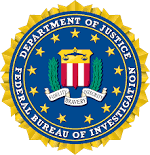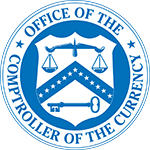Who Regulates Mortgage Banking?

Almost every homeowner has a mortgage on their home at one time or another. And, since homeowners are consumers the government has to provide a framework of regulation to make sure that consumers are not taken advantage of. First, we have to recognize all of the different ways that you can get a mortgage. You might go to a mortgage broker or mortgage banker. Another alternative is to go to a bank or credit union. Regardless of which route you choose, they are all highly regulated at both the state and federal level. Each lender type has to comply with every single rule, law and statute at every level to avoid crushing penalties levied upon them by the regulators. These companies have to also have to comply with a host of other regulations affecting general business operations such as state taxation, advertising, telephone calling and every other aspect of their business.
Most consumers can’t tell the difference between any of the different mortgage originators, but, after the great recession, mortgage brokers stood accused — unfairly — of being unregulated and causing the crash. In reality, mortgage brokers are small and powerless in the face of government regulators, the too big to fail banks and Wall Street. Because of their relatively small stature, brokers were used as a scapegoat to divert attention away from the real causes of the crash. As so well illustrated by the Hollywood movie, The Big Short, Wall Street’s greed and reckless abandon caused the crash.
Nonetheless, the big banks saw the crash as an opportunity to stifle competition by instituting thousands of additional pages of regulation that purport to protect consumers but actually protect the banks monopoly on the mortgage market. Mortgage brokers are regulated by no less than 10 federal laws, 5 federal enforcement agencies and at least 50 state regulators. Here we examine some of the federal and state rules and regulations governing mortgage brokers.
Federal Regulation of Mortgage Brokers
Every mortgage broker must comply with the Real Estate Settlement Procedures Act (RESPA), the Truth in Lending Act (TILA), the Home Ownership and Equity Protection Act (HOEPA), the Fair Credit Reporting Act (FCRA), the Equal Credit Opportunity Act (ECOA), the Gramm-Leach-Bliley Act (GLBA), and the Federal Trade Commission Act (FTC Act), as well as, fair lending laws and fair housing laws. Combined these laws, statutes, rules and regulations provide a mountain of consumer protections to those seeking to borrow money secured by residential real estate.
In addition, brokers are regulated by HUD the department of Housing and Urban Development, the Federal Trade Commission (FTC) as well as the Federal Reserve Board, IRS and the Department of Labor. Regulation abounds covering wages, hourly and overtime requirements, the do-not-call registry and the sending of spam texts, faxes, and emails, disclosure & reporting linked to advertising, marketing, and compensation for services.
And, the States have their say too
In addition to all of the federal regulations that we just discussed, mortgage brokers and bankers are also heavily regulated by the states in which they do business. So if a mortgage broker wants to originate loans in Texas, they have to register with the State of Texas, take education courses about Texas law, pass a state of Texas exam proving that they understand these laws and then get a state banking license. In addition, every loan officer that works for them has to go through the same process. The brokers and their loan officers have to repeat this process in every state that they do business in. It can amount to hundreds of thousands of dollars in licensing fees annually. Banks and their loan officers are exempt from all of this regulation, which means that a bank can hire a minimally paid worker off the street and call them a loan officer with no licensing or education requirements whatsoever.
These small businesses also have to comply with a plethora of predatory lending and consumer protection regulations, laws, and rules such as Unfair, Deceptive or Abusive Acts and Practices (UDAP). Banks, on the other hand, are exempt from these laws too because of federal agency preemption. Finally, brokers have to contend with audit and investigation from state mortgage regulators, attorney generals and the departments of real estates.
Summary
Next to securities, mortgage brokers and bankers are probably in the ranks of the most highly regulated industries there are. What’s sad is that many of these “new” laws clarify or duplicate laws that were on the books prior to the crash of 2008. They don’t really add any substantive protection for the consumer while forcing smaller businesses out of business, reduce competition, increase costs and reduce the options for financing that borrowers can choose from. Furthermore, no law or regulation is going to completely remove risk from the consumer: unsavory characters’ intent on defrauding unsuspecting consumers will continue to do so regardless of the number of laws enacted and those “too big to fail” banks and wall street are exempt from the bulk of the regulation smaller brokers are required to contend with. The new laws actually harm consumers by reducing the number of products they are able to choose from, cause brokers to pass the extraordinary cost of compliance along to the customers and reduce competition for a consumers’ business.
Where to File a Complaint
 The better business bureau has been helping consumers for over XX years by giving them a place to complain about the way a company resolves issues and by offering companies the ability, for a fee, to display an accreditation badge. When you file a complaint with the BBB the company is given an opportunity to respond and other consumers are able to see the number of complaints and whether or not they were resolved satisfactorily.
The better business bureau has been helping consumers for over XX years by giving them a place to complain about the way a company resolves issues and by offering companies the ability, for a fee, to display an accreditation badge. When you file a complaint with the BBB the company is given an opportunity to respond and other consumers are able to see the number of complaints and whether or not they were resolved satisfactorily.
A Complete List of State Banking Regulators
Each statehas, at least, one and sometimes more regulatory departments that are responsible for regulation of financial institutions. Some have a special department for banks and another department for brokers while others combine brokers and bankers together. All brokers and mortgage bankers must obtain a state license prior to originating their first loan. We have compiled a list of all the state banking regulators.
The attorney general can be thought of as a protector of the public. They look for patterns of abuse that harm large numbers of people and then use the state’s legal system to prevent further harm. You’ll find the “AG” involved with regulation of the utilities, antitrust and victim compensation programs.
 The Housing and Urban Development agency was established in 1965 to help provide equal access to housing for everyone. They make sure that the homeless have a place to stay and that no one is discriminated against. Affordable housing is one of HUD’s many mandates. For fiscal year 2015, HUD’s budget request is $46.66 billion, 84% of which the department expects to spend on rental assistance, public housing and homeless assistance. If your complaint centers around discrimination or fair housing, then HUD is the place to go.
The Housing and Urban Development agency was established in 1965 to help provide equal access to housing for everyone. They make sure that the homeless have a place to stay and that no one is discriminated against. Affordable housing is one of HUD’s many mandates. For fiscal year 2015, HUD’s budget request is $46.66 billion, 84% of which the department expects to spend on rental assistance, public housing and homeless assistance. If your complaint centers around discrimination or fair housing, then HUD is the place to go.

Consumer Financial Protection Bureau (CFPB)


National Credit Union Administration
 Like banks, Credit Unions have a regulator that spends all their time regulating the nations credit unions. If you are working with a credit union you should contact the National Credit Union Administration or NCUA.
Like banks, Credit Unions have a regulator that spends all their time regulating the nations credit unions. If you are working with a credit union you should contact the National Credit Union Administration or NCUA.
![]() The Federal Deposit Insurance Corporation (FDIC) provides insurance to consumers guaranteeing that their deposits will never be lost in the event a bank fails. Because of this insurance, consumers have a very high level of confidence that their deposits are very safe. To make sure that the banking system is safe the FDIC monitors every aspect of every bank in excruciating detail. They even have a fantastic tool to locate information about any state or federally chartered bank, its financial condition and who their primary regulator is. Click on the following link to find the FDIC Institution Directory
The Federal Deposit Insurance Corporation (FDIC) provides insurance to consumers guaranteeing that their deposits will never be lost in the event a bank fails. Because of this insurance, consumers have a very high level of confidence that their deposits are very safe. To make sure that the banking system is safe the FDIC monitors every aspect of every bank in excruciating detail. They even have a fantastic tool to locate information about any state or federally chartered bank, its financial condition and who their primary regulator is. Click on the following link to find the FDIC Institution Directory
 There are two types of banks, nationally chartered and state chartered. State chartered banks must comply with state laws while nationally chartered banks comply with federal law. For example, the states have laws about usuary — amount of interest you can legally charge — a nationally chartered bank doesn’t have to comply with these laws. You can tell if a bank is nationally chartered because its name will have “NA” at the end, for example, Wells Fargo Bank, NA. The Office of the Comptroller of the Currency is the primary regulator of nationally chartered banks.
There are two types of banks, nationally chartered and state chartered. State chartered banks must comply with state laws while nationally chartered banks comply with federal law. For example, the states have laws about usuary — amount of interest you can legally charge — a nationally chartered bank doesn’t have to comply with these laws. You can tell if a bank is nationally chartered because its name will have “NA” at the end, for example, Wells Fargo Bank, NA. The Office of the Comptroller of the Currency is the primary regulator of nationally chartered banks.





COMMENTS